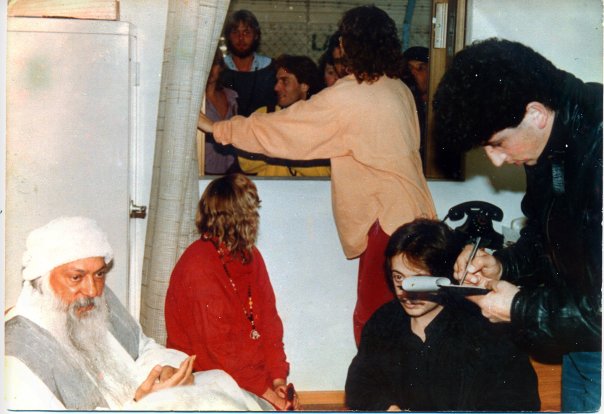Osho : We have discussed Ma Tzu. It is no wonder that a man of the insight of Nansen immediately became… he did not miss a single moment as he arrived at Ma Tzu’s monastery, as he saw the master, he immediately touched his feet.
And this respect was not one-sided, this love was not one-sided; Ma Tzu showered great love and respect on Nansen. Both saw into each other, something immediately became connected. Ma Tzu understood the urgency and the intensity of the search of Nansen; and Nansen understood, ”Here is the man. If I cannot make it with him, I am not going to make it at all.”
This is how disciples and masters meet. It is not a superficial thing; it is something intrinsic, intuitive, and immediate. You have to understand the word ‘immediate’. It is not because of something, that Nansen becomes an intimate disciple of Ma Tzu. There is no cause visible.
Nothing is mediating him to become the disciple – that is why it is ‘immediate’. No cause, no visible reason, nothing to be understood by the mind… but heart to heart something has transpired. They have fallen in deep love, the great love.
HE REALIZED HIS ENLIGHTENMENT AND LATER LEFT MA TZU’S MONASTERY.
That’s why I have called this series, THE POINT OF DEPARTURE. Ma Tzu has his own methods; he has brought Bodhidharma’s methods to the ultimate peak. Nansen loved Ma Tzu, but was not ready to become his successor. If he had remained, he would have been the successor of Ma Tzu.
Just to avoid the embarrassment – because he would go far beyond in different directions – it was better to leave before the master proposed that, ”You are my successor.” Then leaving would have been impossible.
He became enlightened… The ordinary course will be that when you become enlightened with a master, where can you go? This love, this shelter, you will not find anywhere. There is no need to go anywhere at all. Now you can understand the great song of the master, and the invisible music. This is no time to depart.
But the reason for his departure from Ma Tzu’s monastery was that if he does not leave now, he will never be able to leave. Once Ma Tzu proposes that, ”You become my successor,” he cannot say no to his master.
But he wanted to introduce many new things into Zen. Sometimes they may be contradictory to Ma Tzu; sometimes they will be new to Ma Tzu’s methods of teaching, and he does not want anybody to say that he is betraying his master. Rather than betraying, he simply left the monastery at the age of fifty.
